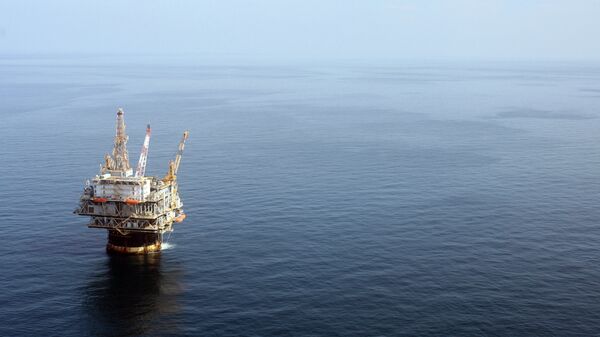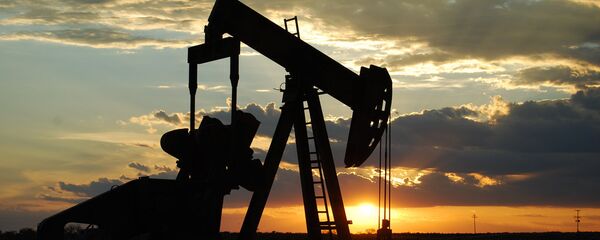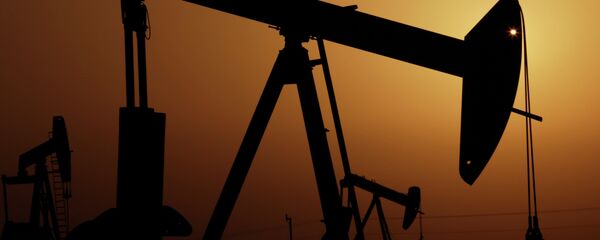In January he signed two executive orders to restart construction of the Dakota Access and Keystone XL pipelines after they had been suspended by the Obama administration.
Trump's Interior Secretary Ryan Zinke is also a supporter of energy independence. On Monday he announced that the Department of the Interior will lease 73 million acres of the US continental shelf off the coast of Texas, Louisiana, Mississippi, Alabama and Florida for oil and gas exploration and development.
The US outer continental shelf falls under federal rather than state jurisdiction. In 2016, the region produced 550 million barrels of oil and 1.25 trillion cubic feet of natural gas, accounting for 72 percent of the oil and 27 percent of the natural gas produced on federal lands.
The US Bureau of Ocean Energy Management "estimates that the U.S. Outer Continental Shelf (OCS) contains about 90 billion barrels of undiscovered technically recoverable oil and 327 trillion cubic feet of undiscovered technically recoverable gas. The Gulf of Mexico OCS, covering about 160 million acres, has technically recoverable resources of 48.46 billion barrels of oil and 141.76 trillion cubic feet of gas," the Department of the Interior stated.
Trump plans to increase the proportion of federal oil and gas in the country's total production of fossil fuels. Most of the US production increase in recent years has primarily occurred on US shale plays situated on land belonging to individual US states.
In 2015, the federal share of total US oil production fell to 21 percent, down from 31 percent in 2006 and nearly 36 percent in 2010.
Overall US natural gas production has dramatically increased in recent years but production on federal lands has declined. In 2015, federal natural gas production comprised 16 percent of the total US output, down from 32.8 percent in 2006.
Some US lawmakers are keen to open more federal lands for oil and gas development. Last month Oklahoma senator James Inhofe put forward a bill that would hand power over federal land to states, giving them the power to aggressively develop federal energy resources.
Mikhail Krutikhin of energy consulting company Rusenergy told the Russian newspaper Gazeta.ru that plans to ease drilling restrictions and lease more land for oil prospecting could turn the US into an oil exporter.
"According to preliminary estimates, hydrocarbon reserves in the new areas are about six times higher than those already discovered. If all Trump's initiatives are implemented, then the US may well stop being an importer of oil," Mikhail Krutikhin of energy consulting company Rusenergy told Gazeta.ru.
Last month, analysts told Bloomberg that Trump's policies could lead the US to export as much as 800,000 barrels of oil per day this year. That amount is more than four OPEC countries. – Libya, Qatar, Ecuador and Gabon – produced in December. In the first 11 months of 2016, the US exported 527,000 barrels a day.
However, drilling in the Gulf is fraught with safety and environmental risks. In 2010, the Deepwater Horizon oil rig operated by BP exploded, killing 11 people and leaking an estimated five million barrels of oil into the ocean.
Last year BP agreed a $20 billion settlement with the US government to compensate five states and local governments affected by the ecological disaster. The oil company had already spent some $28 billion on cleanup operations and compensations, and total payouts may eventually exceed $53 billion.
"The lessons of the 2010 accident have certainly forced a more responsible attitude to risk assessment. The underestimation of risk was one of the main causes of the disaster and the problems with the clear-up," Aleksey Knizhnikov of WFF Russia said.
"It is reasonable that the initiative to exploit reserves in the Gulf of Mexico should raise concerns, because today there are no guarantees that the disaster of 2010 will not happen again," Knizhnikov warned.




